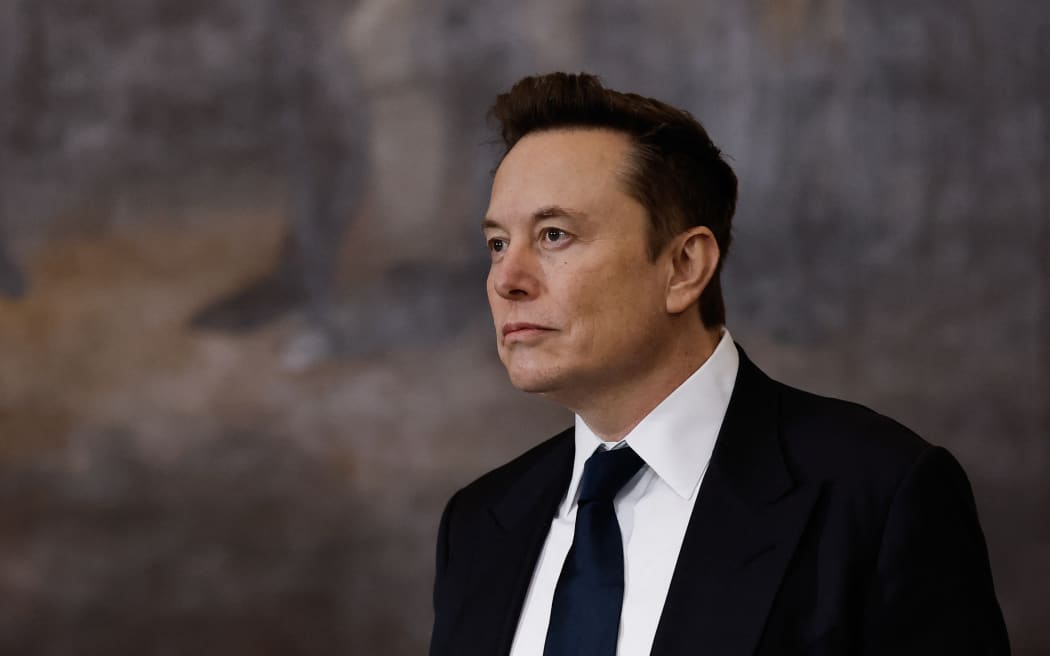By David Goldman, CNN

Elon Musk is leading a group of investors who have offered to buy OpenAI - the parent company of ChatGPT - for $97.4 billion. Photo: AFP
The battle for the future of AI just got extremely expensive and deeply personal.
OpenAI chief executive Sam Altman spoke-out against rival Elon Musk a day after rejecting a potentially seismic deal that could shape the future of artificial intelligence.
He told the Elon Musk-led group of investors the ChatGPT maker was not for sale - despite a massive offer to buy his company.
"Elon tries all sorts of things for a long time. This is the latest - you know, this week's episode," Altman told Bloomberg TV in an interview at the Paris AI Action Summit Tuesday.
"I think he's probably just trying to slow us down."
Musk announced Monday he was leading a group of investors who had offered to buy OpenAI for $97.4 billion.
The OpenAI board would have to consider the massive offer, but it was unclear whether it would seriously entertain it if it believed Musk would divert from the company's mission.
Nevertheless, the offer could make OpenAI's reorganisation plans more difficult - and significantly more expensive.
Musk - an OpenAI cofounder who eventually left the company - had long feuded with Altman and had filed a number of legal complaints against OpenAI and Altman, claiming the AI company and its leadership had misrepresented OpenAI as a philanthropy.
OpenAI was operated by a non-profit organisation that controlled an entity called OpenAI LP, a for-profit company that existed within the larger company's structure.
That for-profit company took OpenAI from effectively worthless to a valuation of around $100 billion in just a few years - and Altman was largely credited as the mastermind of that plan and the key to the company's success.
Musk claimed OpenAI had broken with its founding charter by seeking to make a profit with its AI tools.
Now Musk was a competitor, as he started his own AI company called x.AI.
"I wish he would just compete by building a better product, but I think there's been a lot of tactics," Altman said in the interview.
"Many, many lawsuits, all sorts of other crazy stuff, now this. And we'll try to just put our head down and keep working."
Asked whether Musk was approaching his strategy to combat OpenAI from a position of insecurity, Altman agreed and belittled his competitor.
"Probably his whole life is from a position of insecurity. I feel for the guy," Altman said.
"I don't think he's, like, a happy person. I do feel for him."
Spokespeople for Musk and X did not respond to a request for comment.
Altman said he wasn't concerned Musk had a new elevated position in President Donald Trump's White House but acknowledged perhaps he should be.
"Maybe I should, but not particularly," Altman said.
"I try to just wake up and think about like, how we're going to make our technology better."
The Musk-Altman feud so far

Musk has filed multiple law-suits against OpenAI. Photo: AFP/ Chip Somodevilla
Musk first sued OpenAI in June 2024, but he dropped that initial lawsuit after the company published a blog post that included several of Musk's emails from OpenAI's early days.
The emails appeared to show Musk acknowledging the need for the company to make large sums of money to fund the computing resources needed to power its AI ambitions, which stood in contrast to the claims in his lawsuit that OpenAI was wrongly pursuing profit.
Musk filed a new lawsuit in August 2024 and accused OpenAI of racing to develop powerful "artificial general intelligence" technology to "maximise profits".
Musk also accused the company of engaging in racketeering.
OpenAI, meanwhile, accused Musk of essentially being jealous that he was no longer involved in the start-up, after he left OpenAI in 2018 following an unsuccessful bid to convince his fellow co-founders to let Tesla acquire it.
Altman rejected Musk's contention that OpenAI was abandoning its non-profit roots, even though the company was working to spin out its for-profit entity to give it more leeway.
"We're not moving to a for-profit model," Altman said.
"I mean we're not sure we're gonna do it all. But no matter what, the non-profit will continue to be extremely important; it will drive the mission and will continue to exist. The board is looking at lots of options about how to best structure for this next phase, but the non-profit is not going anywhere."
But the nearly $100 billion offer from Musk and his associates could throw a wrench into the gears of OpenAI's plans.
To spin out the for-profit unit, the non-profit would probably maintain a stake and need to set a value on the deal.
If Musk's deal was legitimate (and it very well may be, as Musk is the richest person in the world), then OpenAI most likely would have a responsibility to demonstrate that its deal better valued the company.
In other words: Musk just set the floor on that deal at $97.4 billion.
Yet it's not quite that simple. Because OpenAI is a non-profit, it had no fiduciary responsibility to maximise returns and it could argue that Musk would violate the company's safety-first mission.
Whatever the case, the world's most prominent AI company has a much trickier road ahead now than it had before.
- CNN




